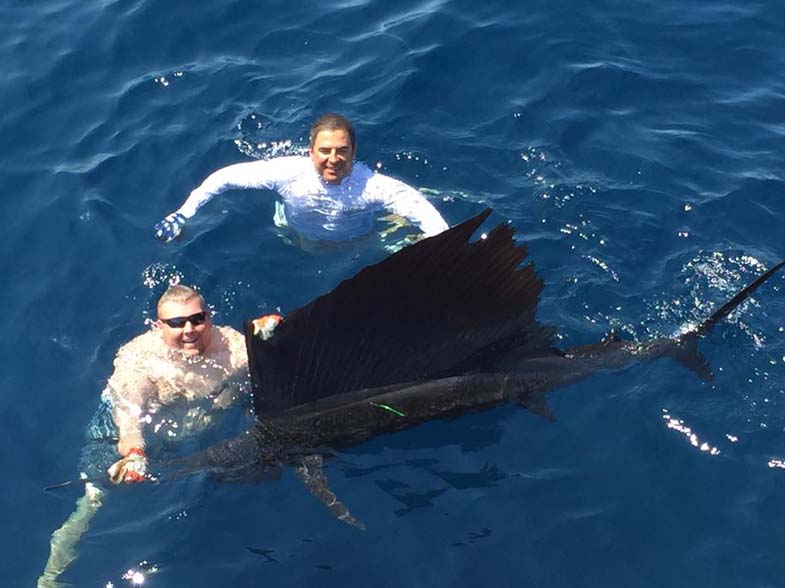Conservation Efforts in Costa Rica:
Costa Rica takes great pride in its commitment to sustainable fishing practices and preserving its marine resources. The country recognizes the importance of maintaining healthy marlin populations to ensure the species’ long-term viability and the marine ecosystem’s overall balance. Consequently, strict conservation measures are in place to protect marlins in Costa Rican waters.

Catch-and-release policies: Catch-and-release practices are a fundamental aspect of marlin fishing in Costa Rica. Anglers are encouraged to release marlin after capture to minimize the impact on their population. This practice allows the fish to recover and continue their natural life cycle, contributing to the sustainability of the species.
Size and bag limits: Costa Rica imposes strict size and bag limits on marlin fishing. These regulations aim to protect younger and smaller marlins, allowing them to grow and reproduce before being harvested. Anglers must adhere to these limits, which vary depending on the specific type of marlin being targeted.
Circle hooks and non-offset hooks: To minimize injury and increase survival rates during catch-and-release, the use of circle hooks and non-offset hooks is encouraged. These hooks are designed to reduce deep hooking and improve the chances of a safe release. Anglers are urged to use these hooks to ensure the well-being of marlin and promote sustainable fishing practices.
Education and awareness: Costa Rica strongly emphasizes educating anglers about the importance of conservation and responsible fishing. Charter services and local fishing organizations actively promote awareness campaigns, educating anglers about best practices, local regulations, and the role they play in preserving marlin populations. Through these efforts, anglers are empowered to become stewards of the environment and make informed decisions that benefit both the species and the ecosystem.
Research and monitoring: Ongoing research and monitoring programs help gather valuable data on marlin populations, migration patterns, and overall health. Scientific studies contribute to a better understanding of the species’ behavior and inform the development of effective conservation strategies. By supporting and participating in these research initiatives, anglers contribute to the collective knowledge and conservation efforts surrounding marlin.
By embracing these conservation measures, anglers can actively contribute to preserving marlin populations in Costa Rica. Responsible fishing practices ensure the species’ sustainability and allow future generations of anglers to continue enjoying the thrill of encountering these remarkable creatures in their natural habitat.
Costa Rica’s dedication to conservation sets a commendable example for responsible fishing practices worldwide. Anglers visiting the country can participate in the preservation of marlin, positively impacting the environment and fostering a sustainable future for the sport of marlin fishing in Costa Rica.